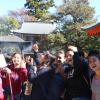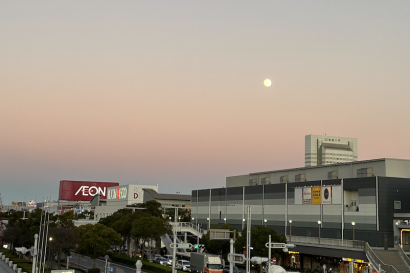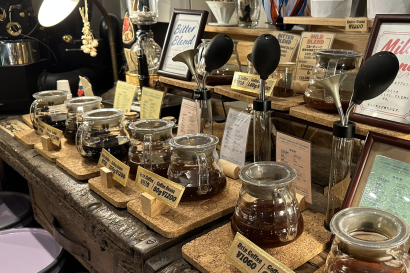When I was in middle school, my dad handed me a small stack of books with topics ranging from the physics of space, to the concept of zero-waste manufacturing. I took one look at the top book, which promised me “a simple journey through the history of injustice in America,” and decided to continue reading the Twilight saga. This, I thought to myself as I highlighted the particularly romantic passages where Edward likens his love for Bella to the hunger of a lion, is true literature.
My dad has a knack for giving excellent book recommendations. A talent, overshadowed however, by my inability to appreciate his curated bookshelf. But a few weeks ago as I settled into an hour long plane ride to Osaka, I decided to read an essay he sent to me a while back. Entitled, “This is Water,” by David Foster Wallace, I can honestly say that this essay has changed the way I think about life.
The essay talks about how “the most obvious, ubiquitous, important realities are often the ones that are the hardest to see and talk about...The fact is that, in the day-to-day trenches of adult existence, banal platitudes can have life-or-death importance.”
Let me explain.
For the past week I have been traveling through Kyoto and Osaka. The autumnal illumination draws people like moths, and as a result, much of our time was spent commuting by train or waiting in line to see popular cultural attractions. Entrenched in the tedium and petty frustration that comes with being a tourist, there often comes a point when the crowd jostles you one too many times, or the tourist in front of you cuts you off, or a couple photobombs your perfect picture of Kiyomizudera and you just lose your head completely.
Jesus Christ! You rail, why are there so many goddamn people? Why are they pushing me? Why won’t they hurry up? Why can’t they just take the picture and get out of my way?
Everyone does it, and I understand. You’re tired. Your feet hurt. You’re hungry and cold and the line is moving at glacial pace and you just want to be back in your bed at home and not have to go back to the Airbnb bed that smells like wet clothes.
But these are the “day-to-day trenches of adulthood” that Wallace warns you about in his essay. These are the moments that you feel personally victimized by the universe and by god you want everyone to know how deeply unfair it is that you have to put up with this kind of cosmic mistreatment.
It is so easy to get trapped in your head, because as Wallace puts it, that is your “natural default setting.” In essence, you are programmed to view the world as though you are the center of the universe and everyone else is just a minor character in the story of your life. But, once you step back from the situation, you realize that everyone else is hungry and tired and cold and wants to get the best picture of the autumn leaves glinting in the moonlight. It takes an active effort to consider the feelings of others when they are not as constant and accessible as your own.
The important thing to remember is that years from now I won’t look back on my trip to Kansai and think about the infuriating Peach Aviation flight delay that caused us to miss the last train to Kyoto, the gloomy rainclouds hovering over Osaka, or the frustration of navigating a crowd of eager, selfie-stick-wielding tourists…
I’ll think about the glimmering lights of Osaka at 1am in the morning, and the hush that you rarely hear in the bustling city. I’ll laugh about how Tiffany and I sat in our beds at the capsule hotel at 3am, drinking milk out of glass containers. I’ll reminisce about the afternoon I spent wandering through Arashiyama and how the light drizzle filled the bamboo forest with the scent of rain. I’ll remember how the wind felt on my face as I ran through the never-ending red gates of Senbon Torii. I’ll picture the autumn leaves (kouyou) that burned bright, like flickering candles, against the backdrop of Kiyomizudera.
Those are the moments I want to hold on to--burned into my memories for rainy days.










